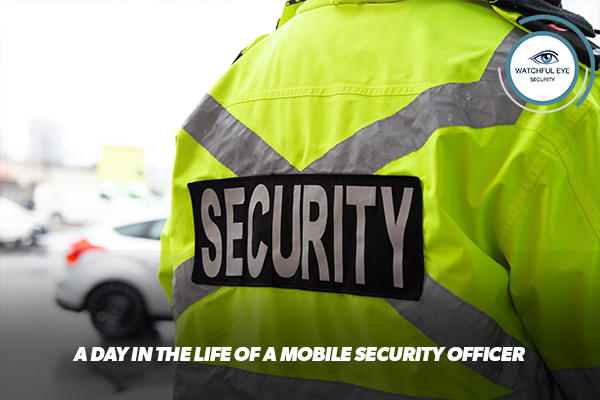
A Day in the Life of a Mobile Security Officer
The role of a mobile security officer is fast-paced, dynamic, and crucial to keeping businesses, properties, and communities safe. Unlike static guards who remain in one location, mobile security officers travel between multiple sites throughout their shift, responding to incidents, conducting patrols, and ensuring that everything is secure. Their work requires vigilance, flexibility, and quick thinking—no two days are ever the same.
Starting the Day: Briefings and Preparation
A mobile security officer’s day often begins with a briefing at the operations centre or head office. Here, they receive updates about the sites they’ll be covering, any reported incidents, and any specific instructions for the shift. Checking equipment is a key part of preparation—ensuring that radios, body cameras, torches, and company vehicles are in perfect working order. Organisation is essential, as officers may visit several locations in one shift, each with its own security protocols and challenges.
Before setting off, the officer reviews their patrol route. Some visits are scheduled for regular checks, while others are reactive, responding to alarms or client requests. This combination of planned and unpredictable tasks keeps the job engaging and requires the officer to stay alert at all times.
Patrolling Multiple Sites
Once on the road, a mobile security officer’s core responsibility is to conduct site patrols. These may include checking office buildings after hours, inspecting construction sites, monitoring car parks, or ensuring retail units are locked and secure. Officers perform perimeter checks, inspect gates and doors, and look for signs of intrusion, damage, or safety hazards.
Each site visit requires careful attention to detail. Mobile officers use electronic systems to log their patrols and record any findings, ensuring accountability and providing detailed reports for clients. Even small irregularities—like an unlocked door or a flickering security light—are noted and reported. Their proactive approach often prevents issues before they escalate into serious problems.
Responding to Alarms and Emergencies
One of the most critical aspects of the job is responding to alarms. When an alarm is triggered, the officer must arrive quickly, assess the situation, and determine whether it’s a false alarm or a genuine security breach. In the case of a break-in, they may need to liaise with the police, secure the area, and protect any evidence until law enforcement arrives.
These situations require calmness under pressure and strong decision-making skills. A mobile security officer must be able to handle unexpected scenarios confidently, ensuring both their own safety and the safety of others. Each response is documented, providing clients with clear and professional incident reports.
Building Client Relationships
While much of their time is spent on the move, mobile security officers also play an important role in client relations. They often serve as the main point of contact for multiple businesses, offering reassurance through their professionalism and reliability. Regular communication helps build trust and ensures clients are always informed about their property’s security status.
Because they visit different sites, mobile security officers gain an excellent understanding of various environments. They can identify recurring issues, suggest improvements, and provide valuable feedback to enhance overall security operations.
Challenges and Rewards
The life of a mobile security officer can be demanding. Shifts often take place during unsociable hours, including nights and weekends, when businesses are closed and properties are most vulnerable. The job requires long periods of driving, walking, and sometimes working alone in quiet or remote locations.
Despite these challenges, the role is deeply rewarding. Mobile officers take pride in knowing that their presence helps prevent crime, protect assets, and ensure safety for clients and communities. Every shift brings a sense of purpose and accomplishment, knowing that their work directly contributes to peace of mind for others.
The End of the Shift: Reporting and Reflection
At the end of the day, the officer returns to base to hand over keys, complete reports, and update supervisors on any incidents or follow-ups required. Accuracy and attention to detail are just as important at this stage as during patrols. The information recorded ensures seamless communication between shifts and helps maintain a high standard of service.
As they clock off, a mobile security officer can look back on a day that might have included anything from routine checks to emergency responses. Each shift offers new experiences, reinforcing the importance of adaptability, professionalism, and commitment to safety.
A mobile security officer’s day is built on vigilance, responsibility, and dedication. Their work often happens behind the scenes, yet it plays an essential role in keeping properties secure and communities safe. It’s a career that demands reliability and resilience but rewards those who take pride in making a difference. In a world where security challenges are ever-changing, mobile security officers remain the frontline guardians—always moving, always protecting, and always ready to respond.
